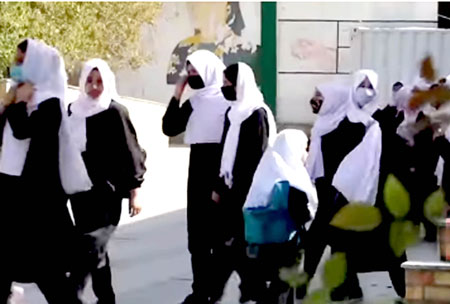Human Rights Watch (HRW) in a new report says that if girls are not allowed to go to school in the new solar year (1401), international donors will reduce their support for education in Afghanistan.
The agency added in a new report that girls and women must have equal access to education without discrimination on the basis of gender, and suggested to international donors that they only fund education in provinces where girls are being educated.
“Donors to Afghanistan, like Afghanistan itself, have signed up to the conventions of the elimination of all forms of discrimination against women, and under that convention it is not going to be possible for donors to fund any part of the education system which is discriminating against girls and women.
So donors need to monitor closely and verify that any part of the education sector that they are funding is providing equal access for girls and women versus boys and men. So that could mean, for example, if some provinces don’t have fully functioning secondary schools for girls, donors would not be able to fund those provinces,” said Heather Barr, associate women’s rights director at Human Rights Watch.
Meanwhile, female students across the country, who have been out of school for more than seven months are eagerly waiting to return.
“Everything is fine here, the girls’ and boys’ classes are completely separate, and the girls are coming by car, and our teachers are women,” said Shahla, a student in Paktia.
“We are very tired of these vacations. We ask the Ministry of Education to open the school as soon as possible so that we can go to school,” said Hajera, a student.
Based on statistics of the Ministry of Education, in the previous government about 75% of the education costs were covered by the government and 49% by international donors.
“Teachers’ salaries must be paid in the first place, because until our salaries are paid, we will not be able to teach students with high morale, and we ask donors to help us in the education sector,” said Suhaila Rahmani, a teacher.
But the Ministry of Education said that from tomorrow (Wednesday), the education of over ten million male and female students will begin, and the Ministry has pledged that it will pay the salaries of all teachers on a monthly basis.
“According to the announcement, from tomorrow all schools across the country will be reopened to all students from grades one to twelve, as well as all the Madrasas (Religious Schools),” said Aziz Ahmad Reyan, spokesman for the Ministry of Education.










